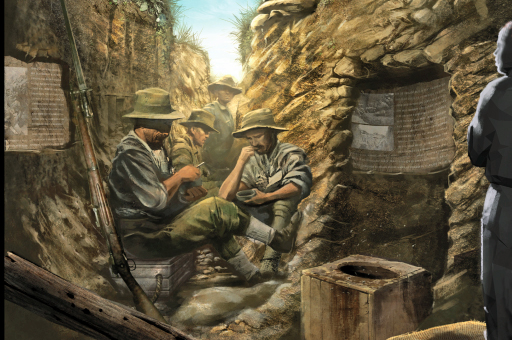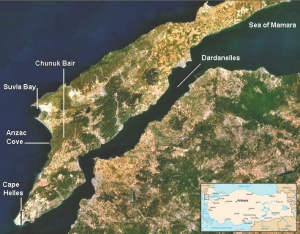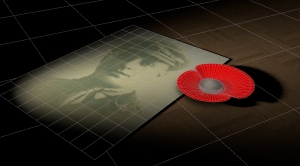 Anzac Day is once again upon us. It’s a unique day for our nation – especially this time around as it’s our 100th year commemoration. For those of you reading further abroad Anzac Day (April 25th) marks the anniversary of the landing of the New Zealand and Australian soldiers – the “Anzacs” – on the Gallipoli Peninsula in 1915.
Anzac Day is once again upon us. It’s a unique day for our nation – especially this time around as it’s our 100th year commemoration. For those of you reading further abroad Anzac Day (April 25th) marks the anniversary of the landing of the New Zealand and Australian soldiers – the “Anzacs” – on the Gallipoli Peninsula in 1915.  It was a British led campaign with the aim being to capture the Dardanelles, which served as the gateway to the Black Sea. But it was not to be so. Thousands lost their lives there – Turks as well as those in the British side. One fifth of those who died were New Zealanders. But it was not all defeat for it was a time when our little country began to play its own role on the world stage.
It was a British led campaign with the aim being to capture the Dardanelles, which served as the gateway to the Black Sea. But it was not to be so. Thousands lost their lives there – Turks as well as those in the British side. One fifth of those who died were New Zealanders. But it was not all defeat for it was a time when our little country began to play its own role on the world stage.
My Granddad Gordon Somervell was among those who fought there. I have written more about that in another post (https://petersomervell.wordpress.com/2014/04/25/lest-we-forget/) so I won’t repeat the details. Needless to say it was a horrible ordeal for him. He never wanted to talk about it. The smell of dead and decaying corpses, the whiz of sniper bullets, the shock waves of shells near your trench, the flies, the dysentery and disease – awful memories that would stay with him for life. Granddad was one of those who made it back, for which I’m thankful. Otherwise I wouldn’t be writing this post.
I don’t know if Granddad believed in God. I was not old enough (nor interested enough) to ask him. But I would have really liked to ask him now. I would also like to know, while he was sitting in that trench, if he prayed.
You may have heard the saying, “There are no atheists in foxholes.”[1] It’s no myth. Researchers at the Cornell University in New York conducted a recent survey of World War II veterans and found that reliance on prayer rose from 32% to 74% as the battle intensified. So then, based on the stats alone, it is more than likely Granddad did in fact pray – and I would guess intensely and fervently.
That’s not all. A British Army chaplain wrote about his experiences in a Japanese POW camp in Malaya during World War II and said that the one request from all the ranks was for a Bible. He had only a few copies on hand so they had to be loaned out – for short periods. At the Chungkai camp on the Thai-Burma railway (which were some of the worst), demand was so high that Bibles were lent and returned on an hourly basis. Afterwards he wrote,
How many officers and men openly stated that it was their Religion … which kept them sane, when everything men hold dear, was lost. For many, it was their first experience of the saving and keeping power of a living Christ … For all it was a knowledge deep and abiding that Christianity works. No mere theory could have survived the experience of those years of captivity.[2]
I find this all quite fascinating.
And so now I’m wondering not only did Granddad pray, but did he read the Scriptures? Did he read about Jesus and the reason he came? Did he memorize – as many soldiers did, Psalm 23? How did he process all the carnage he was seeing? And how on earth did he make this fit with what the Bible says about a loving and all-powerful God? Perhaps he didn’t. Perhaps, as it happens in moments of great danger or trauma, he simply called out for help from a power greater than himself, and left the questions alone. After all, if you were hanging on to a branch at the edge of a cliff and someone offered you a helping hand, would you question his character? I bet you’d take the offer and worry about the questions later.
I don’t know what you are thinking about this Anzac Day. Probably not about God or the Bible or Psalm 23. But there might come a time when you do. And when that time comes when you are in a great predicament and you are thinking about calling on God, just know there are plenty who have gone before you. And if God does in fact rescue you and spare you from death, don’t do as others have done and forget about him afterwards.
He won’t.
[1] James Morrow, American writer
[2] J.N. Lewis Bryon, Assistant Chaplain-in-General, World War I


No comments yet.